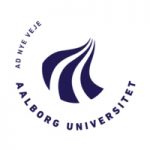项目介绍
About the course
The DEng in Wind and Marine Energy Systems and Structures will offer you the opportunity to develop in-depth knowledge, understanding and expertise in the design and development of offshore renewable energy systems (wind, wave and tidal).
The EPSRC Centre for Doctoral Training (CDT) in Wind and Marine Energy Systems and Structures is run by the University of Oxford in collaboration with the University of Strathclyde and the University of Edinburgh. All students on the CDT course undertake a comprehensive programme of taught modules, as well as an individual doctoral research project.
As an Oxford DEng student you will be based in your sponsoring company for the majority of your degree, while also spending a significant proportion of your time at the Department of Engineering Science in central Oxford. The main research interests for the Oxford stream of the CDT are in geotechnical engineering (notably foundations for offshore wind turbines) and environmental fluid mechanics (as applied to offshore wind and tidal turbines). Applications to work in other areas of civil engineering with relevance to offshore renewable energy (eg structural health monitoring) are also welcomed.
Please note that offers for the DEng in Wind and Marine Energy Systems and Structures will only be made if suitable arrangements can be, or are likely to be, made with a sponsoring company. These arrangements are coordinated by the University (not the applicant). You are advised to contact the Oxford CDT Director, Professor Chris Martin, to discuss arrangements at an early stage to ensure that your application is appropriate to this course. Alternatively, please consider the DPhil in Wind and Marine Energy Systems and Structures, which follows a similar programme of taught and research components but is university-based rather than company-based.
The first year of the course focuses on developing core skills through both taught courses and individual research work. From October to January you will complete an induction term at the University of Strathclyde in central Glasgow. There you will take introductory taught courses covering fundamental aspects of offshore renewable energy, and you will participate in a group design project. The induction term will establish a broad knowledge base on which to build your advanced research, and will allow you to develop links with students enrolled through the Strathclyde and Edinburgh streams of the CDT. From February of the first year you will be based in your sponsoring company to begin individual research work, as preparation for your main research project. You will have both an academic supervisor and an industrial supervisor, who will meet with you regularly to assess progress and discuss research matters. The topic(s) and main location of your project will be by agreement with your two supervisors and the sponsoring company. As your research work begins you will also continue with the group design project, which will normally be completed by the end of your second term.
Following the second term you will have access to a range of technical skills, transferable skills and management/leadership skills modules that will be taught at Strathclyde, Oxford or Edinburgh. These modules will be completed according to a flexible timetable, agreed with your supervisors, to complement your research activities. The technical skills modules will include relevant aspects of geotechnical engineering (three modules), fluid mechanics (two modules), structural dynamics, structural integrity, mechanical engineering and environmental impact assessment. Transferable skills will include academic writing and presentation, research ethics, intellectual property, teamwork and communication skills. Leadership skills will include aspects of management, strategy, operations and entrepreneurship. However, the main focus of activity following the second term will be your individual research project. You will continue to meet your supervisors on a regular basis.
In Oxford you will be a member of the civil engineering research group, where you will integrate with other students, attend research seminars, discuss papers, present your research, rehearse conference talks and build links between different research areas. You will also present your work within your sponsoring company as required. An annual CDT workshop will give you the opportunity to present your research to other CDT students, industrial partners and invited researchers from other universities. Industrial collaborators will be invited to discuss current challenges and to highlight market trends.
Supervision
The allocation of graduate supervision for this course is the responsibility of the Department of Engineering Science and it is not always possible to accommodate the preferences of incoming graduate students to work with a particular member of staff. Under exceptional circumstances a supervisor may be found outside the Department of Engineering Science.
You will have both an academic supervisor and an industrial supervisor, who will meet with you regularly to assess progress and discuss research matters.
You will join your supervisor’s research group which normally has post- doctoral researchers and other research students working on broadly similar research themes. Typically you would interact daily with member of the group and have weekly contact with your supervisor. Many groups have weekly meetings where members discuss their research or perhaps present other published work.
Assessment
In the first year you will be assessed on the taught courses and the group project, as well as your individual research project. Early in your second year, there will be a formal assessment to decide whether you have made sufficient progress to continue working towards a DEng. You will be required to write a research report, give an oral presentation, and present a detailed and coherent plan for your future research. Progress towards completion will again be formally assessed during your third year of study. For the DEng you will be required to submit a substantial thesis or a coherent portfolio of research and development work, which will be examined by experts in the field (one from the department and one from elsewhere). The research will often result in the publication of several journal and conference papers, and these papers may form the basis for the submitted portfolio of work.
The final degree is awarded by the University of Oxford.
Graduate destinations
The CDT in Wind and Marine Energy Systems and Structures will provide DEng students with multi-disciplinary expertise in offshore renewable energy, and will allow them to work on challenging research and development problems within their sponsoring companies. As they progress through the CDT students will benefit from a gradual increase in responsibility and a greater level of external engagement, making them well equipped for future leadership roles in industry both nationally and internationally.
Changes to this course and your supervision
The University will seek to deliver this course in accordance with the description set out in this course page. However, there may be situations in which it is desirable or necessary for the University to make changes in course provision, either before or after registration. The safety of students, staff and visitors is paramount and major changes to delivery or services may have to be made in circumstances of a pandemic (including Covid-19), epidemic or local health emergency. In addition, in certain circumstances, for example due to visa difficulties or because the health needs of students cannot be met, it may be necessary to make adjustments to course requirements for international study.
Where possible your academic supervisor will not change for the duration of your course. However, it may be necessary to assign a new academic supervisor during the course of study or before registration for reasons which might include illness, sabbatical leave, parental leave or change in employment.
For further information please see our page on changes to courses and the provisions of the student contract regarding changes to courses.
录取要求
-
a first-class or strong upper second-class undergraduate degree with honours.
-
The qualification above should be achieved in one of the following subject areas or disciplines: general engineering; civil engineering; mechanical engineering; or a closely related discipline.
联系方式
电话: +44 1865 270000相关项目推荐
KD博士实时收录全球顶尖院校的博士项目,总有一个项目等着你!





